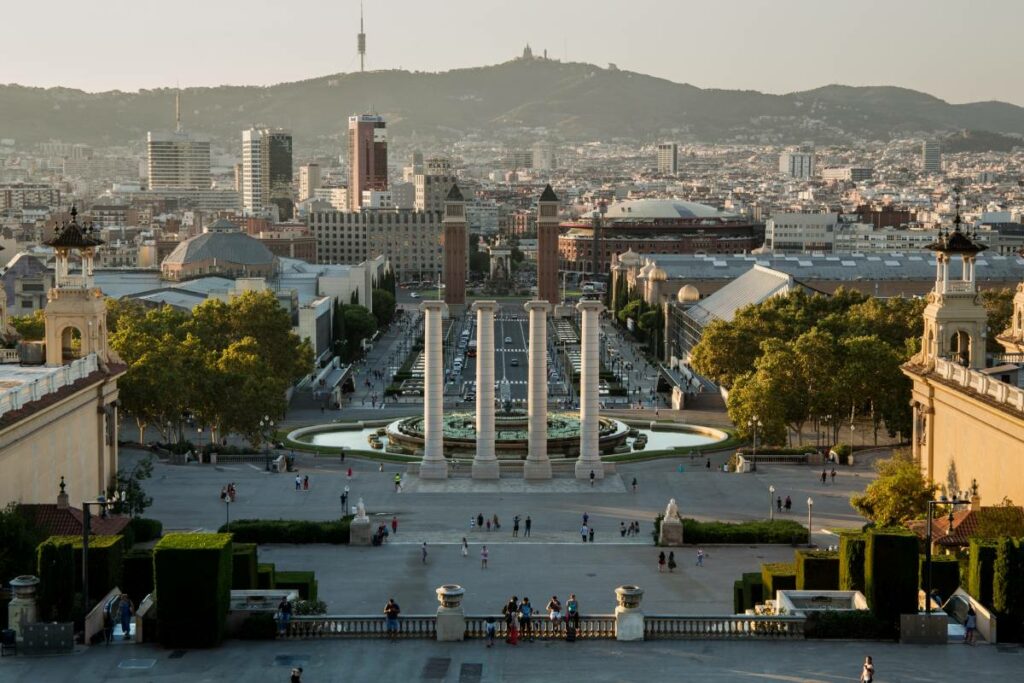There is a direct link between the state of our democracy and futureproofing our societies. It starts in cities.
Ambitious policies are only possible in healthy democracies that respect the rule of law and give public debate and civil society the necessary space. But in some countries – especially where major cities are governed by the opposition – the erosion of the rule of law prevents cities from acting as frontrunners in the transition to a more sustainable society.
It goes without saying: without the cooperation of cities, EU policies will not go anywhere. Three out of four inhabitants of the European Union live in cities. The EU is committed to becoming carbon neutral by 2050 and the facts show that the majority of emissions (up to 70%) are generated in cities. So if cities do not lead the way, those targets will not be met.
The European Union and its European Green Deal should not therefore be seen merely as a form of negotiation between nation-states but parts of a multilevel system that depends on a vibrant local level. Yes, high-level climate goals at the European level are indispensable, next to clear national commitment and concrete policies, but they will not work without bottom-up support and implementation.
The good news is that a growing number of cities have clear climate objectives. Many started even before member states had elaborated their national plans to implement the Paris Climate Agreement. Europe's cities are already helping each other implement cutting-edge policies, think of networks such as Eurocities or Energy Cities. In those cities suffering from budget cuts and curtailment of competences at the hands of governments that erode the rule of law, this crucial role risks being lost.
More fundamentally, cities are places of hope on the path to defending democracy. Many democratic institutions were developed decades if not centuries ago, making the need for democratic innovation pressing. Cities can act as the incubators of this much-needed renewal.
Think of the participatory budgeting piloted in opposition-run Budapest, the new forms of digital participation introduced in Europe’s first Capital of Democracy Barcelona, and the progress made towards community-wealth building in Amsterdam. At once open and rooted, cities are essential pillars of any sustainable democratic system given their proximity to people’s everyday needs and struggles.
It is now clear that the European Union was slow to take action on the rule of law. Despite some important steps, it has failed to tackle the decline of democracy in several member states. Annual rule-of-law reports, the new conditionality mechanism, and strengthened recommendations are progress but they are far from sufficient answers to our problem.
What the EU needs is a way to break out of the European institution versus the nation-state framing. Here cities hold the key. EU-level measures to safeguard fundamental rights and values should go hand in hand with local, bottom-up initiatives. The fight between those who wish to protect and those who wish to undermine democracy and democratic values is the same on the local, national and EU levels. In this light, we welcome the Defence of Democracy Package, but call for it to empower cities so they can play their full role.
What is needed most of all is a real political role for cities in the European Union. Direct EU-to-cities contacts and channels should be strengthened with new forms of representation. EU institutions, in the knowledge that their objectives depend on cities to succeed, should be investing much more intensively in strategic alliances across levels. Making the Committee of the Regions a meaningful actor in European policymaking is only one part of the answer.
Instead, cities are too often out of the picture when the gears of European politics start turning. The design of critical policies overlooks cities. The European cohesion funds largely bypass cities and access to major programmes, most glaringly the EU Recovery and Resilience Facility, pass through the uncertain hands of national governments. Schemes such as European Urban Initiative and Horizon Europe can be building blocks, but the European Union is about more than funds and projects. As it reflects on its democratic future, the political place of cities needs to be asserted.
Today’s “member states first” approach is not a natural phenomenon but a political choice. Since the 1990s, the European Union has been moving away from the idea of a Europe of the Regions to become today’s Europe where national governments run the show. It is time to once again put regions and cities at the heart of the European integration.
European democracy depends on cities. Where we see democracy under attack, whether in Budapest or indeed in Kyiv, it is in cities that we find the locus of resistance where freedom is kept safe. Throughout Europe's history, cities have given rise to new democratic ideas, forms, and institutions. Vibrant civic life represents the best guarantee for a stronger European democracy. Let’s not forget that cities are the home of democracy just when we need them most.
Co-signed by:
Gwendoline Delbos-Corfield is a MEP for Greens/EFA and leading the European Parliament’s work on the rule of law in Hungary. She is also a board member of the Green European Foundation.
Benedek Jávor is head of the Representation of Budapest to the European Union and a board member of the Green European Foundation.
Dirk Holemans is co-president of the Green European Foundation and director of Oikos think tank.


